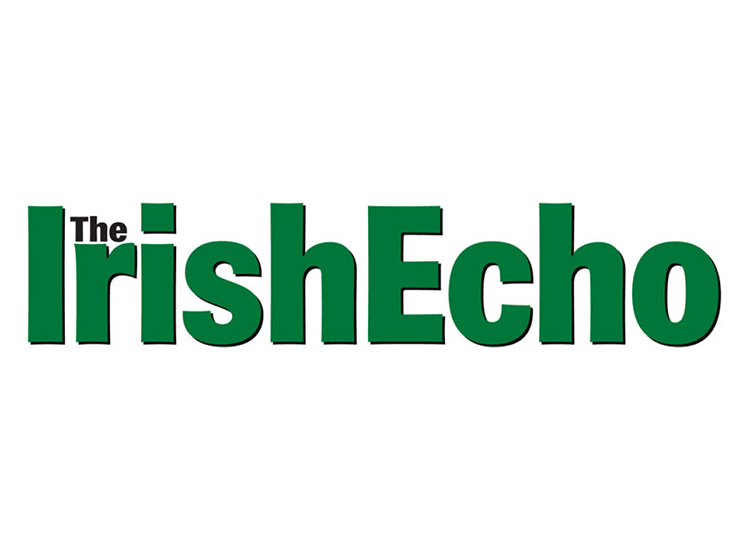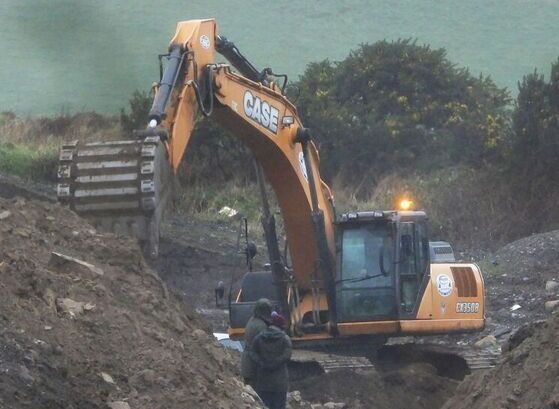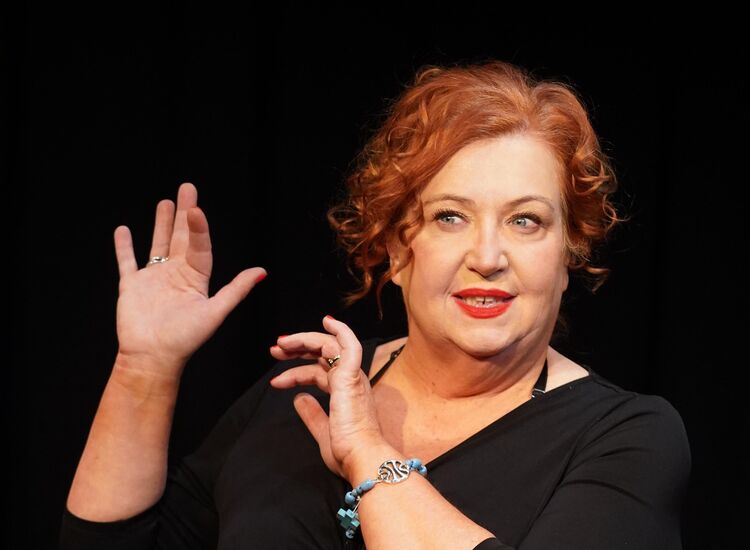Garret FitzGerald and Margaret Thatcher. RollingNews.ie file photo.
By Irish Echo Staff
It comes as no surprise but documents just released show that the British government was furious at the Clinton administration decision to issue Gerry Adams a U.S. visa in early 1994.
According to an Irish Independent report, a blistering note from then prime minister John Major's private secretary, Roderic Lyne, was sent to U.S. national security adviser Tony Lake.
The note is part of around five hundred Cabinet Office files released by the British National Archives It reads: "The movement in which Gerry Adams has long been a leading figure has murdered not only thousands of its own countrymen, but also one member of our Royal Family, one Cabinet Minister's wife, two close advisers to Margaret Thatcher and Members of Parliament, two British ambassadors - and small children in our shopping centres."
Mr. Major wrote to President Clinton to say Adams "has been closely associated with terrorism for two decades.
"In the Joint Declaration, he was offered a route into the democratic process, and into negotiations with us and with the Irish Government. He and his movement have not taken it. As you will know the evidence is that the IRA intends to continue its strategy of terrorism, and does not have courage to make peace and compete in the democratic arena."
Clinton, the report noted, was under pressure from influential Irish-American politicians, most notably Senator Edward Kennedy, named as instrumental in pushing for Adams's admission to the U.S.
In a letter to the president in January of that year, Senators Kennedy, John Kerry, Daniel Patrick Moynihan and Christopher Dodd, make the case for the visit.
The Guardian, in one of its reports on the release of files, this time from Irish archives, reported how Taoiseach Garret FitzGerald privately warned then British prime minister Margaret Thatcher that redrawing the border would be a fatal mistake.
During robust exchanges at a critical summit in the run-up to the Anglo-Irish Agreement, Thatcher argued that giving Dublin an official role in the running of the region would plunge it into civil war.
Venting her fears that the North was heading towards a Marxist state, Thatcher told her Irish counterpart in the November 1984 talks that resolving the crisis could mean “simply” moving the border.
“She wondered if a possible answer to the problem might not simply be a redrawing of boundaries.”
But Taoiseach FitzGerald rejected the apparent offer.
“What we have achieved at present is a lowering of expectations,” he said.
The pair, according to the Guardian report, later discussed a federal, Belgium-style model. FitzGerald said the Irish government had worked on dampening hopes among some for an end to Northern Ireland as it was constituted.
Most people had accepted “unity was not on” in the short term.
The secret files, just released in Dublin’s National Archives, include an official note of the two-hour Chequers summit, which reveals Thatcher’s “incomprehension” as to what exactly Irish nationalists (in the North) wanted.
FitzGerald, leader of the Fine Gael party, explained that the minority felt Irish and part of the majority of the island of Ireland “from which they had been cut off by an arbitrary act.”
The British had drawn a line around the six counties, creating a Protestant majority, cutting off the minority from the nation, and people were “set against each other within a narrow space, he said.
FitzGerald added there was hard evidence of bias in the justice, security and policing systems in Northern Ireland while the guns of the British Army’s Ulster Defence Regiment were being used to “bully” Catholics.
He warned Thatcher that she needed to deal with the alienation of northern nationalists.
FitzGerald pressed Thatcher for a new system of governing Northern Ireland, based on agreed policies between Britain’s secretary of state and an Irish government minister. Where they could not agree, decisions would be appealed to the prime minister and the taoiseach, he said.
But Thatcher “reacted strongly” to the plan. “No, no – that is joint authority. You are giving them 40% of our country,” she said.
During one sharp exchange, as Thatcher argued that Westminster was answerable for Northern Ireland, FitzGerald retorted that for fifty years they had not regarded themselves as being answerable.
“They had never permitted a question on Northern Ireland to be discussed in the house,” he said in reference to the House of Commons. “That was partly the reason for the present trouble.”
On a suggestion from the taoiseach of a Belgium-style solution – a federal arrangement under a monarchy – Thatcher said she “had not ruled it out, even though it would be attacked by unionists as an effective repartition”.
She added: “History shows that the Irish, whether the Scottish-Irish or the Irish-Irish, don’t like to move. However, they all seem to be terribly happy to move to Britain.”
Thatcher, the report continued, complained there was too much public-sector employment in the north of Ireland, there was no wealth creation and that it was costing London £2bn a year in subventions at the time.
During the two-hour meeting at her country house retreat, Chequers, Thatcher said there were worries about a threat of more violence as a result of the Anglo-Irish talks.
“There was a real danger that a Marxist society could develop,” she said.
Later that day, in a press conference, Thatcher gave her infamous “out, out, out” declaration, when she rejected three options put forward from the Irish government for a solution to Northern Ireland: Irish unity, a two-state federation or joint authority.
It was later reported that FitzGerald thought Thatcher’s behavior was gratuitously offensive.








